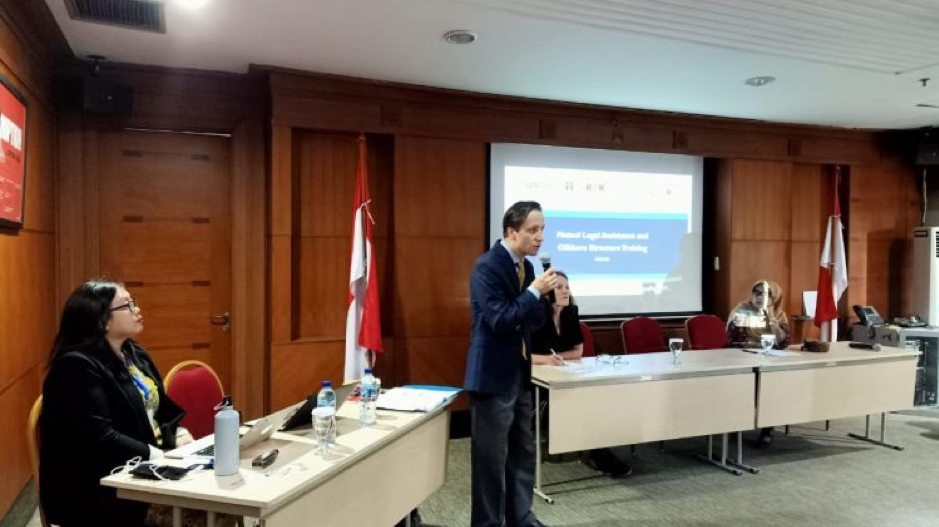ICAR training: Mutual Legal Assistance and the use of offshore structures to conceal beneficial ownership of illicit assets

During 14–18 October 2019, experts from the International Centre for Asset Recovery (ICAR) conducted a 5-day training workshop in Jakarta, Indonesia as part of USAID CEGAH’s on-going programming with KPK (Corruption Eradication Commission), Office of the Attorney-General (AGO) and Ministry of Law and Human Rights relating to beneficial ownership. The workshop once again brought together 22 prosecutors and investigators from the KPK and AGO, and representatives of the Ministry of Law and Human Rights.
Investigators and prosecutors require the skills and knowledge to unravel corporate and trust entities, and to formulate proper requests in order to follow leads for crucial information and obtain all critical foreign evidence. This is of particular importance in transnational investigations with a foreign component and where the proceeds of crime are stashed abroad.
This workshop aimed at enhancing capacity to formulate proper Mutual Legal Assistance (MLA) requests in order to follow leads for crucial information held abroad. It focused on securing all critical foreign evidence, and unravelling corporate and trust entities.
In addition to focusing on drafting MLA requests, the workshop incorporated presentations on offshore corporations, trusts, ease of incorporation, secrecy, layering of trust and shell companies, ability to identify beneficial ownership and offshore banking.
Participants learnt how various offshore structures, when combined with offshore banking, provide creative and successful mechanisms for hiding illegal income. Criminals succeed in distancing themselves from the beneficial ownership of stolen assets but at the same time enjoying the ultimate benefit.
Shell companies, when used illicitly, are generally used in combination with additional mechanisms to obscure beneficial ownership. By adding layers of corporate vehicles, hiding behind bearer shares, and ensuring that the beneficial owners are located (or the identifying information is stored) in another jurisdiction, criminals often succeed in thwarting attempts to uncover illegal activity and trace stolen assets.
By understanding what is meant by a corporate vehicle or structure, particularly in the context of offshore jurisdictions and the variety of vehicles offered, investigators and prosecutors are able to dispel the mystique often associated with criminal investigations involving such structures. During the training, they enhanced their knowledge of the different kinds of corporate vehicles available in foreign countries and their licit and illicit uses to increase the chances of following the money trail in major corruption and money laundering cases.


